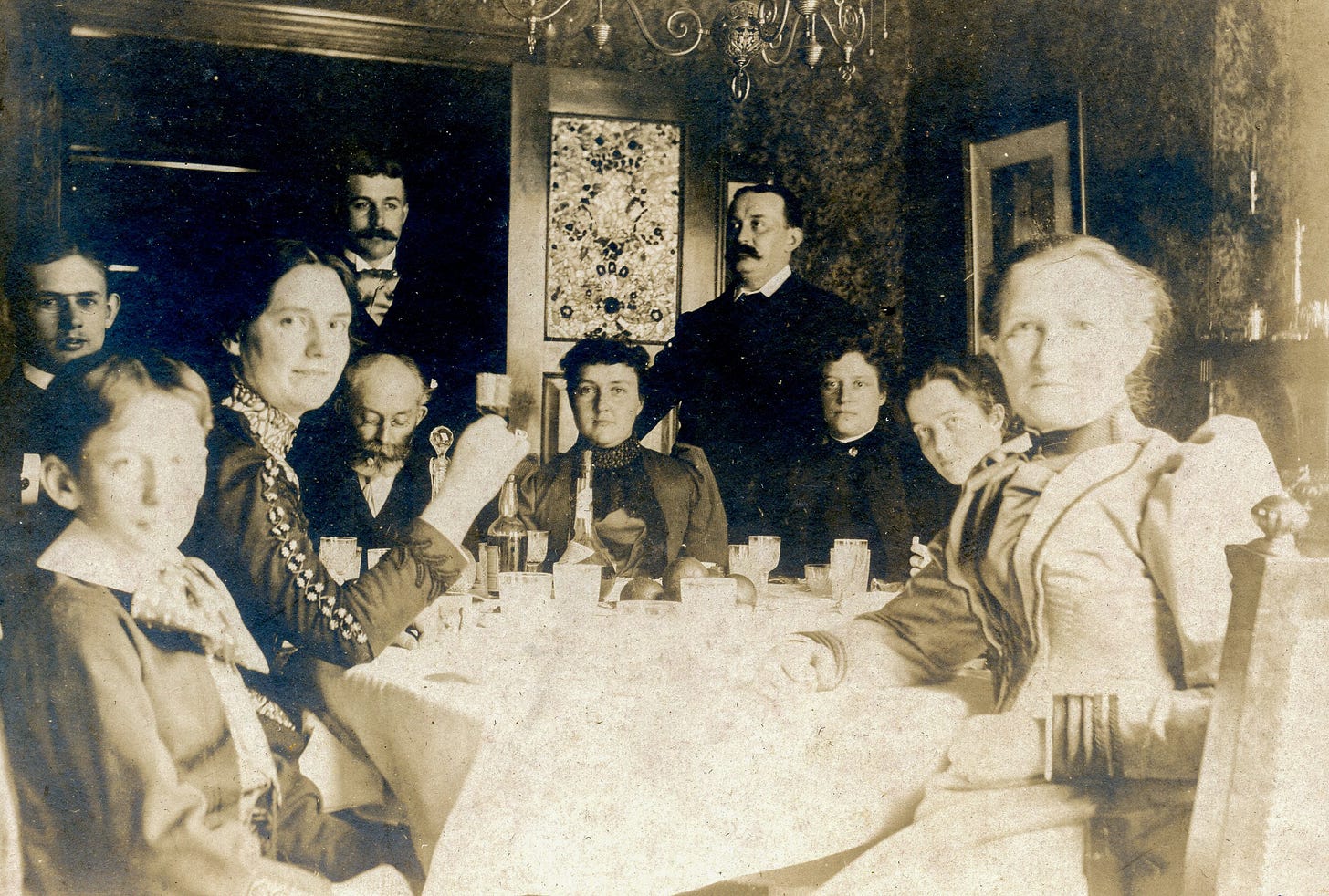FINNS: An Oral History of Finnish-Americans in New Hampshire’s Monadnock Region
Excerpted from FINNS: An Oral History... by Patricia Kangas Ktistes, 1997, all rights reserved.

Oiva Anderson
I don’t ever remember it being all that dry here during Prohibition. A lot of people made their own cider. My father always made it: a couple of barrels in the cellar. If you allow it to age, hard cider gets to about the same alcohol content as wine. We had an orchard; my father cleared the fields of a lot of big stones. He had experience, I don’t know where he got it, using high explosives. He’d drill a hole in the rock and blast away. You could buy dynamite in those days and he was very good at it and never missed. And that dynamite: he stored it down cellar next to the same little room where the cider barrels were kept. It was always there in an earthenware jug of some kind. Later, I went down there and said, “I ought to get rid of that. Who knows what may happen?” And I’m sure it was unstable by then; it was liquid in the bottom of that thing. I brought it out in back; I didn’t try to explode it. Dynamite is mixture of nitroglycerin and a lot of inert stuff. I didn’t want a little mushroom cloud being seen over the Anderson farm. I think he bought it at a farmers’ store. They might have used it to get rid of big tree stumps, though I don’t remember my father doing that. When he blew rocks up, we’d all be hiding behind something, then rocks would fly all over the place. You could hear them landing everywhere, such as on the chicken house roof. We had chicken thieves during the depths of the Depression. There was a real panic. I don’t know how much of it was true, but our neighbors were almost literally up in arms. I know my father used to keep watch at night sometimes with a .22 rifle. There was always talk of chicken rustlers; maybe more talk than action. We never had any stolen but kept hearing about other people losing whole flocks. They didn’t steal just one or two chickens to eat, as if somebody were hungry; these were stolen by the load. Like a professional job. It’s a job to get a load of chickens moved; they’re pretty noisy. It must have been done when people were in Fitchburg on all-day shopping expeditions. Chicken and dairy farming were pretty small industries, but you could survive in those days. We had bulls for a long time but never kept individual bulls very long; never past three years. They get nasty. Ours were pets, actually. Every one of them was named Erkki [Erik]. I remember one time we were kids playing down in the brook past the field and running along this path, along steep bank over the brook, and came face-to-face with our bull. My parents had let him out for a stroll and the cows were not out. And we were pretty startled and started racing off in the other direction and over a stone wall. When we looked back, the bull was standing there in the path, laughing at us, I think. He was a perfectly harmless bull, but he joined in the chase and figured, ‘What the heck?’ On the farm, we never had much to do with veterinarians until artificial insemination came into play. It would have to be a real emergency to call one. My mother was a great veterinarian. She was a natural-born healer. I wrote a story for the Raivaaja once about her treating a cat. Our barn was full of cats; they used to sleep on top of the cows. Once the mother cat of the whole tribe of eight or 10 —the matriarch—got sick. By the symptoms, I didn’t know then, but I recognized later on that it was distemper—essentially cat pneumonia. Distemper usually is supposed to be fatal. My mother took that cat into the kitchen, put it into a box by the stove, wrapped an old sock around it, and fed it whiskey. The poor cat suffered that for a few days and finally figured it had enough of this treatment and got well. My mother nursed everything, including trees. The pine across the driveway was one I planted as a kid. After I had planted it, it was just a small tree, and the snow broke it. He went and bound it up with a bandage, put a splint on it, and the tree survived. My mother was a fortune teller—a very good one. She had a wide following. Women would come visit and she would tell their fortunes with cards’ she left certain cards out of the deck, although I don’t know which ones. I just wish that I had learned it from her. It wasn’t mumbo-jumbo” she just was very straightforward about what the cards said. But she had a certain way of dealing and re-dealing and so on, and then she’d read them. My mother was quite sociable; my father was not, and there would be company here quite a bit. And that was always a feature of these visits: fortune-telling. I’m sure there was a lot of psychology in it; you don’t want to upset people. To my knowledge, nobody criticized her for it.



Yes, cider and dynamite were part of my past as well. My father used dynamite for his well digging. He made cider and beer. Sometimes the beer bottles would explode.